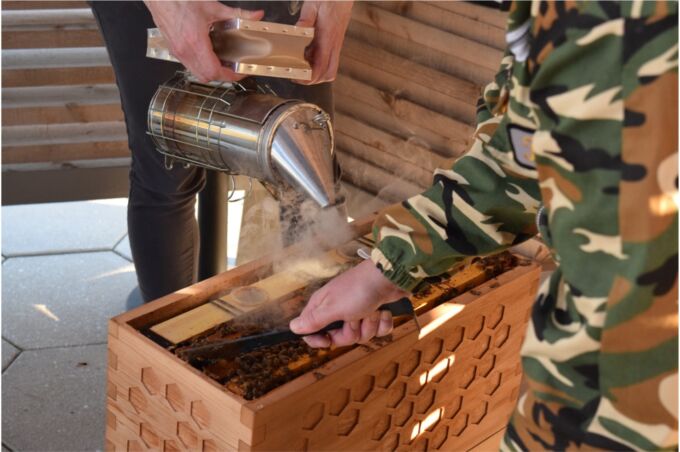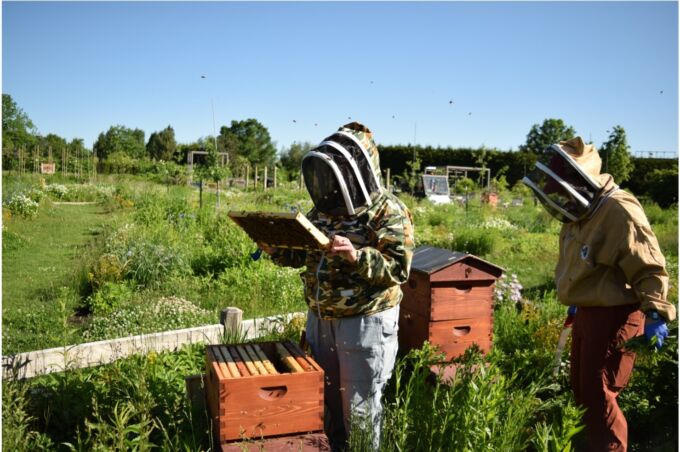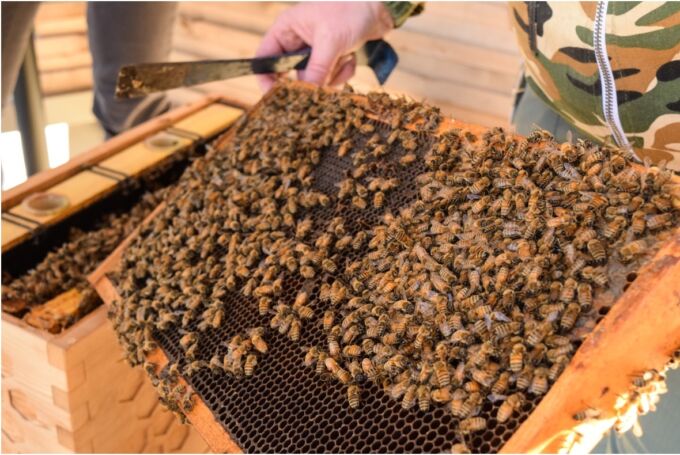
Become a Beekeeper
Beekeeping is a worldwide cultural practice that dates back ten thousand years. In North America today, the species typically managed for pollination services are:
- Honey bees (Apis mellifera)
- Mason bees (Osmia lignaria and Osmia cornifrons)
- Leafcutting bees (Megachile rotundata)
- Bumble bees (Bombus impatiens)
We offer resources for those interested in becoming a beekeeper as well as continuing education for expert beekeepers.
Honey Bees
Beekeeping 101
This online course about the science and practice of beekeeping is for beginning beekeepers. It covers bee biology and behavior, hive management, equipment, bee products, and more.
Beekeeping 102
Learn organic colony management practices like managing Varroa mites and other pests with IPM methods, and to keep honey bees healthy without hard chemicals.
Beekeeping Basics
Become a successful beekeeper by learning about honey bee biology and how to manage bee colonies in this publication.
A Field Guide to Honey Bees and Their Maladies
Identify and treat maladies in your honey bee colony.
Mason Bees
Orchard Pollination: Solitary (Mason) Bees
Learn about the life history and management of mason bees in this extension article.
Pollinator Series: Mason Bee Management for Orchard Pollination
This webinar will introduce you to the mason bee life cycle, and provide instruction on where, when, and how to manage them sustainably and responsibly.
Bumble Bees
The Bumble Bee Lifestyle
This article introduces the bumble bee and its lifecycle.
Bumble Bee Biology and Management for Pollination
This webinar discusses explains the importance of bumble bees and how their unique biological characteristics and lifestyle is essential for pollination. Topics include why bumble bees are vital to our ecosystems, recommendations for landscape management to support these pollinators, and the commercial bumble bee industry. This article also discusses the webinar.



